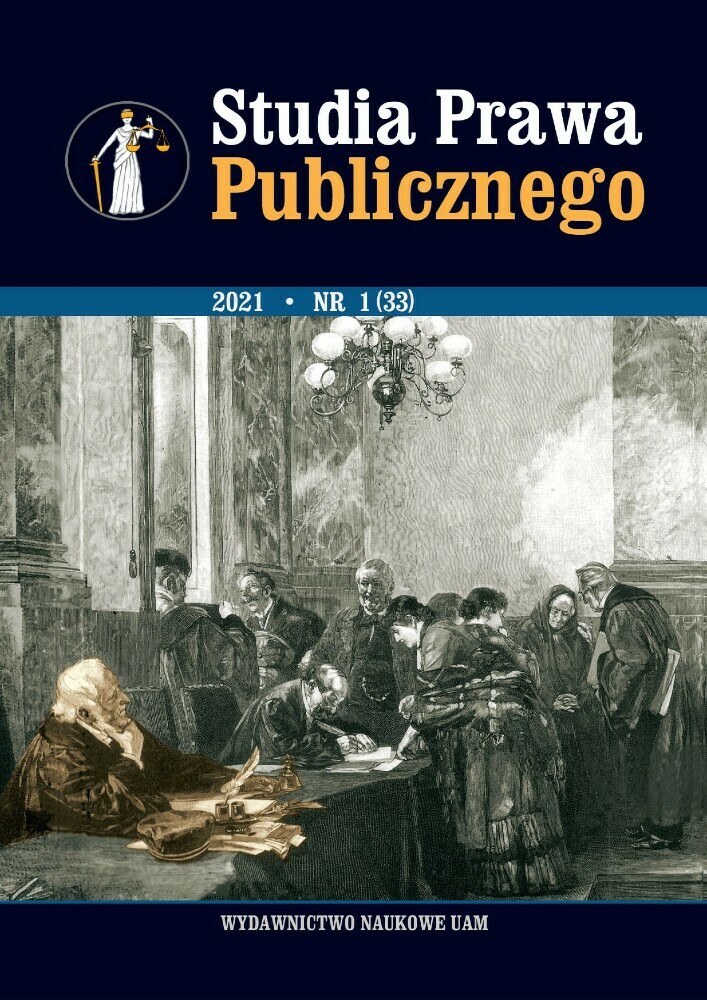Abstrakt
The study concerns one of the methods of amicable settlement of consumer disputes i.e. out-of-court settlement of disputes between a client and a financial market entity before the Financial Ombudsman. The Financial Ombudsman is a sectoral entity created to resolve specific disputes in the financial sector. Due to the fact that services provided by financial market entities often require special protection of consumers who are clients of financial market entities it is therefore important to ensure that the consumer has easy and effective access to legal protection measures. One such measure is out-of-court settlement of disputes before the Financial Ombudsman. Disputes regulated by civil law have been additionally regulated by public law. Out-of-court dispute settlement before the Financial Ombudsman is indirectly
an element of the implementation of the European Union legislative package concerning ADR (Alternative Dispute Resolution) aimed at providing consumers with the possibility of resolving disputes with entrepreneurs before entities offering independent, impartial, transparent, effective and quick methods of alternative disputes solving. In Poland the implementation took place in the Act of September
23, 2016 on out-of-court resolution of consumer disputes. However, out-of-court dispute settlement between a customer and a financial market entity was provided by the Polish legislator at an earlier date. It was implemented by the Act of August 5, 2015 on complaints handling by financial market entities and on the Financial Ombudsman. The aim of the study is to analyse the administrative and legal conditions of out-of-court dispute settlement before the Financial Ombudsman and to attempt to verify whether this process does in fact provide clients of financial market entities with quick and effective access to legal protection measures, therein protecting their interests.
Bibliografia
Bogusławski A., Pozasądowe rozwiązywanie sporów z podmiotem rynku finansowego jako element ochrony konsumenta, „Finanse i Prawo Finansowe” 2016, III(1), http://yadda.icm.edu.pl/yadda/element/bwmeta1.element.hdl_11089_17857 (dostęp: 15 IV 2020).
Cauffman C., Critical Remarks on the ARD Directive, Maastricht European Private Law Institute Working Paper, no. 2016/13, https://papers.ssrn.com/sol3/papers.cfm?abstract_id=2885509 (dostęp: 15 IV 2020).
Cyman D., Zarys systemu instytucjonalnej ochrony praw konsumentów na rynku finansowym, „Gdańskie Studia Prawnicze” 2017, t. 38, https://www.ceeol.com/search/article-detail?id=606370 (dostęp: 15 IV 2020).
Dziedzic M., Rola obowiązków informacyjnych przedsiębiorcy wobec konsumenta w sferze usług finansowych, w: Ochrona konsumenta na polskim i międzynarodowym rynku finansowym, pod red. J. Monkiewicz, E. Rutkowskiej-Tomaszewskiej, Warszawa 2019.
Liwoch P., Rzecznik Finansowy – analiza działalności w zakresie alternatywnych metod rozstrzygania sporów, „Finanse i Prawo Finansowe” 2018, t. 4(20), http://dspace.uni.lodz.pl/xmlui/handle/11089/26403 (dostęp: 15 IV 2020).
Loos M.B.M., Consumer ADR After Implementation of the ADR Directive: Enforcing European Consumer Rights at the Detriment of European Consumer Law, Centre for the Study of European Contract Law Working Paper, no. 2015-11, https://papers.ssrn.com/sol3/papers.cfm abstract_id=2685651 (dostęp: 15 IV 2020).
Rzeszowski J., Rzecznik Finansowy – „nowa-stara” ochrona konsumenta?, „Zeszyt Studencki Kół Naukowych Wydziału Prawa i Administracji UAM” 2017, nr 7, https://repozytorium.amu.edu.pl/handle/10593/18810 (dostęp: 15 IV 2020).
Tabernacka M., Mediacje – przeciwdziałanie podziałom w praktyce stosowania prawa, w: Mediacje ponad podziałami, pod red. M. Tabernackiej, Wrocław 2013.
Tabernacka M., Sporządzanie dokumentów podczas negocjacji i mediacji w sferze publicznej, w: eadem, Negocjacje i mediacje w sferze publicznej, Warszawa 2018.
Tulibacka M., Mediacja w sporach konsumenckich, w: Mediacje. Teoria i praktyka, pod red. E. Gmurzyńskiej, R. Morek, Warszawa 2018.
Licencja
Prawa autorskie (c) 2021 Marika Piwowarczyk

Utwór dostępny jest na licencji Creative Commons Uznanie autorstwa – Użycie niekomercyjne – Bez utworów zależnych 4.0 Międzynarodowe.

